Nay Santangelo is a graphic designer and the co-founder of Sangueblu, a vintage clothing and accessories store on Calle dei Fuseri in the center of Venice. Originally from Caserta, Nay arrived in Venice alone for what was initially supposed to be a short internship, but ended up staying, feeling more and more at home within a community that maintains an optimistic outlook on the future of the city. In this interview, Nay tells us how her passion for vintage has become her profession, about neighborhood relationships, and how each garment carries a small piece of Venetian life.
INTERVIEW BY VALERIA NECCHIO
PHOTOGRAPHY BY NAY SANTANGELO / PORTRAITS BY VALERIA NECCHIO
Listen to Nay x Gli Incurabili’s playlist
V: Did you choose Venice, or did Venice choose you?
N: Good question. It was 2014. I was traveling to Milan, and after a somewhat chaotic week, I arrived in Venice and immediately realized how, in contrast, life was slower here. It was May, the most beautiful time – the period of the Biennale, long days of light. I was alone and didn’t have a smartphone, so I wandered around, getting lost in the alleys. I spent a week here and fell in love with the city. Then I went back, graduated, and started sending out resumes. In the end, even though I had been offered a job in Milan – while in Venice I had only received an internship offer – I chose to come here. I’m not sure why exactly. Maybe because at that time, I was obsessed with the city (my thesis was on Fellini’s Casanova, which is set in Venice, even though it was actually filmed entirely in Cinecittà!), or maybe because of that beautiful and solitary first experience… I don’t know.
The fact is, I moved here and started working in a graphic design studio. I didn’t know anyone at the time, but my colleagues immediately became like a second family to me. Since then, I’ve never felt less alone. I was supposed to stay only a few months, but instead, it has been seven years since I arrived. And I can tell you that today, I can’t see myself anywhere else: I’m so adjusted to this environment; it has become my habitat. And if I have occasional second thoughts, I just need to pause for thirty seconds and immediately realize what I have. How many people dream of coming to Venice and may never make it? And here I am, living here.
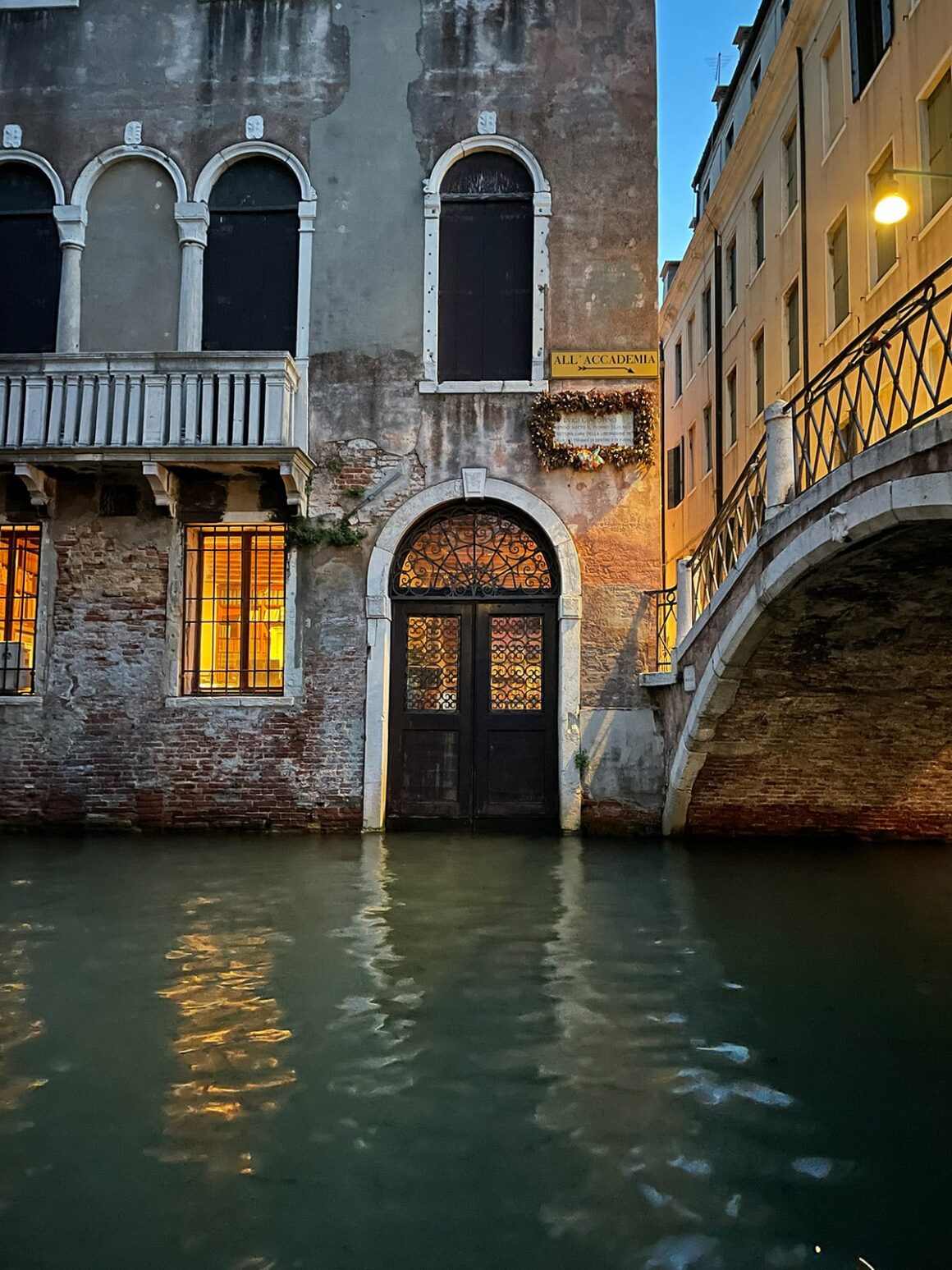
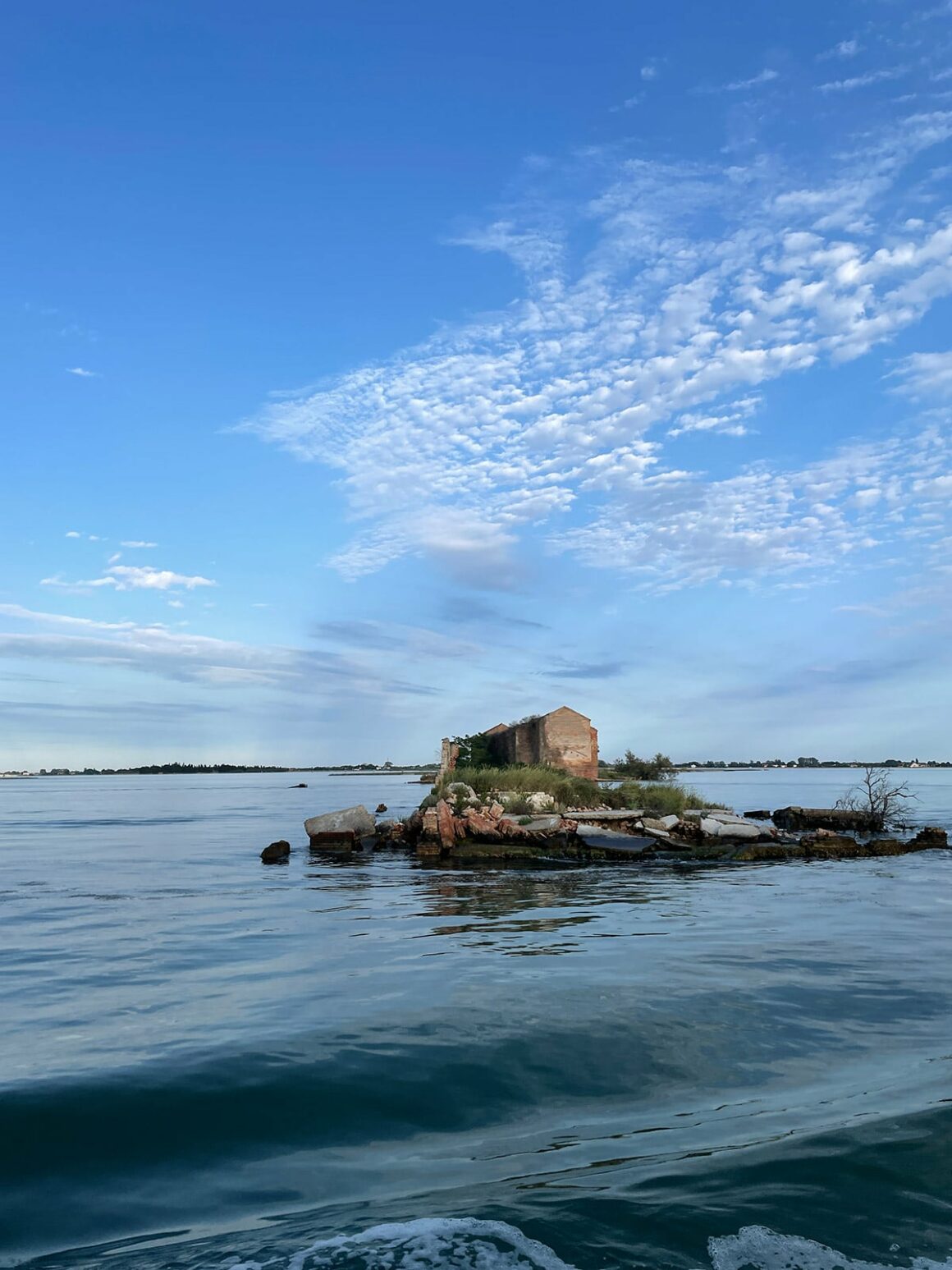
“ Today, I can’t see myself anywhere else: I’m so adjusted to this environment; it has become my habitat.”
V: The theme of a city that rewards those who take the leap – one jumps and the city embraces them – often comes up. It’s certainly a suggestion, but it’s definitely a common thread in these “incurable stories.”
N: The city embraces you, and so do the people who believe in it and invest in it – they involve you and welcome you. I think of Daniele (Carrer, editor’s note), my business partner, who is Venetian, has done a thousand things in life, and still wants to do many more. He, like many others, has understood the value of integrating the local community with new energies, with new people like me. And so, new people are coming, finally. There are a lot of young people returning, investing in Venice, and bringing valid ideas.
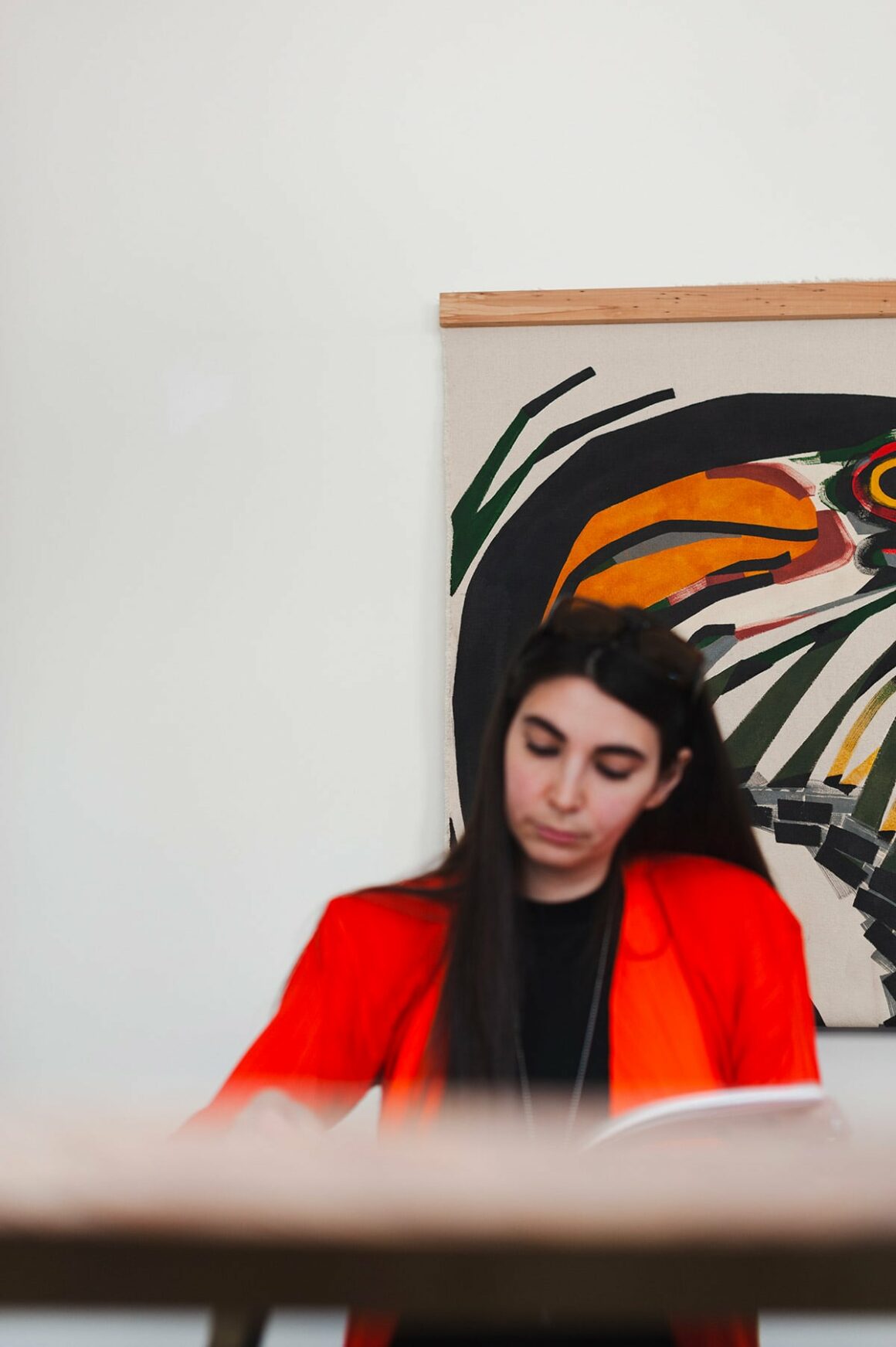
V: Do you also feel this way?
N: Yes. I have to say that in the early years, many people I knew here eventually left – some went to Milan, some to Paris – maybe because they couldn’t find job opportunities. Only the tenacious Venetians remained, those who will stay here until the end. With remote work, things have changed a bit; the social fabric is coming back together, and this desire to be here and do things is spreading like wildfire.
V: It’s particularly interesting when someone chooses to come to Venice among all the places they could go.
N: There’s a quality of life here that is undeniable.
V: But I would say that it’s for those who can appreciate it. It may seem obvious, but it’s not.
N: Exactly. And those who do appreciate it end up putting in a lot of effort to keep it beautiful. We’re trying, and sooner or later, it will pay off, I’m sure of it. This city cannot be swallowed up by tourism. At some point, it will need to find the right balance.
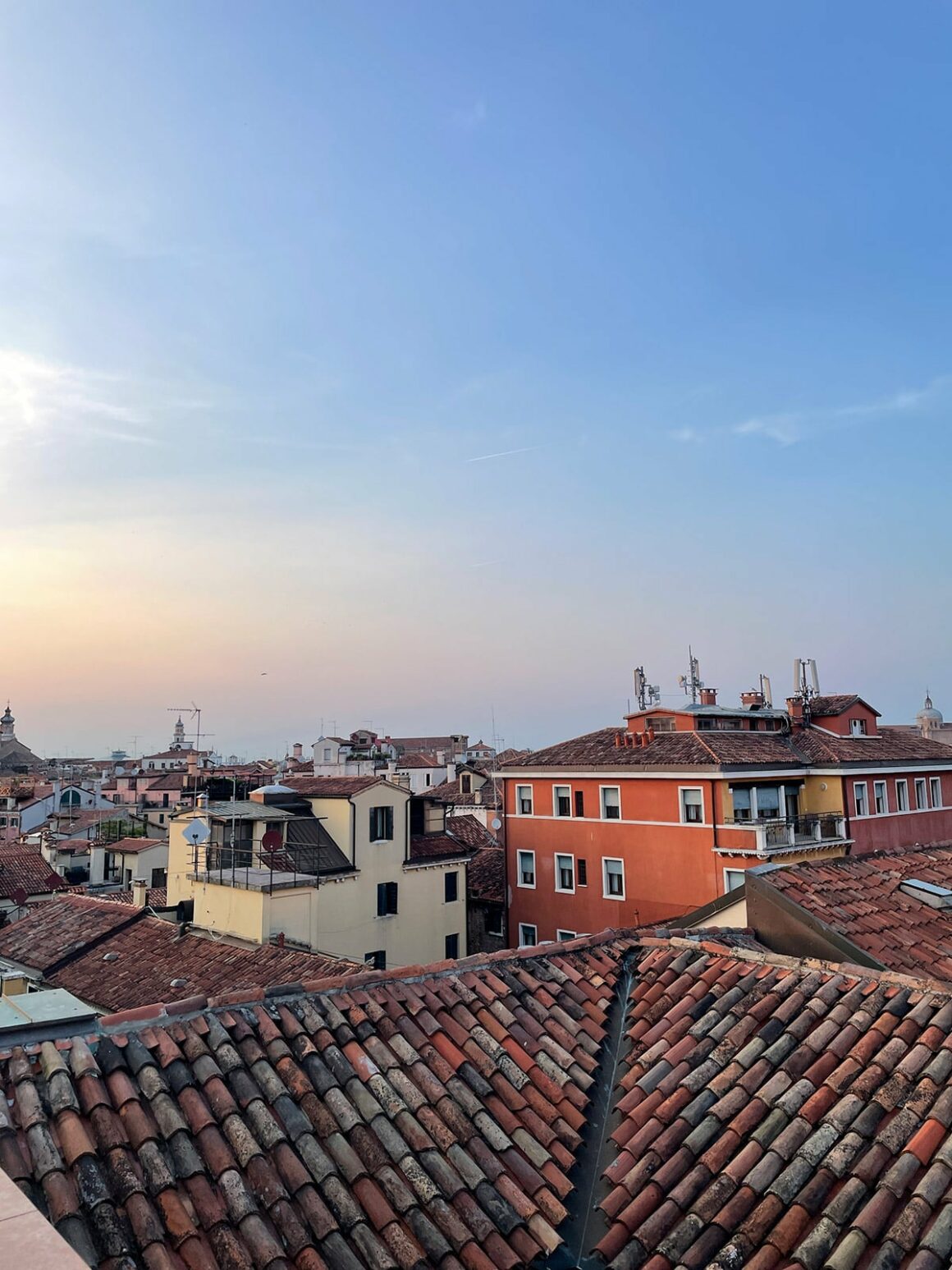
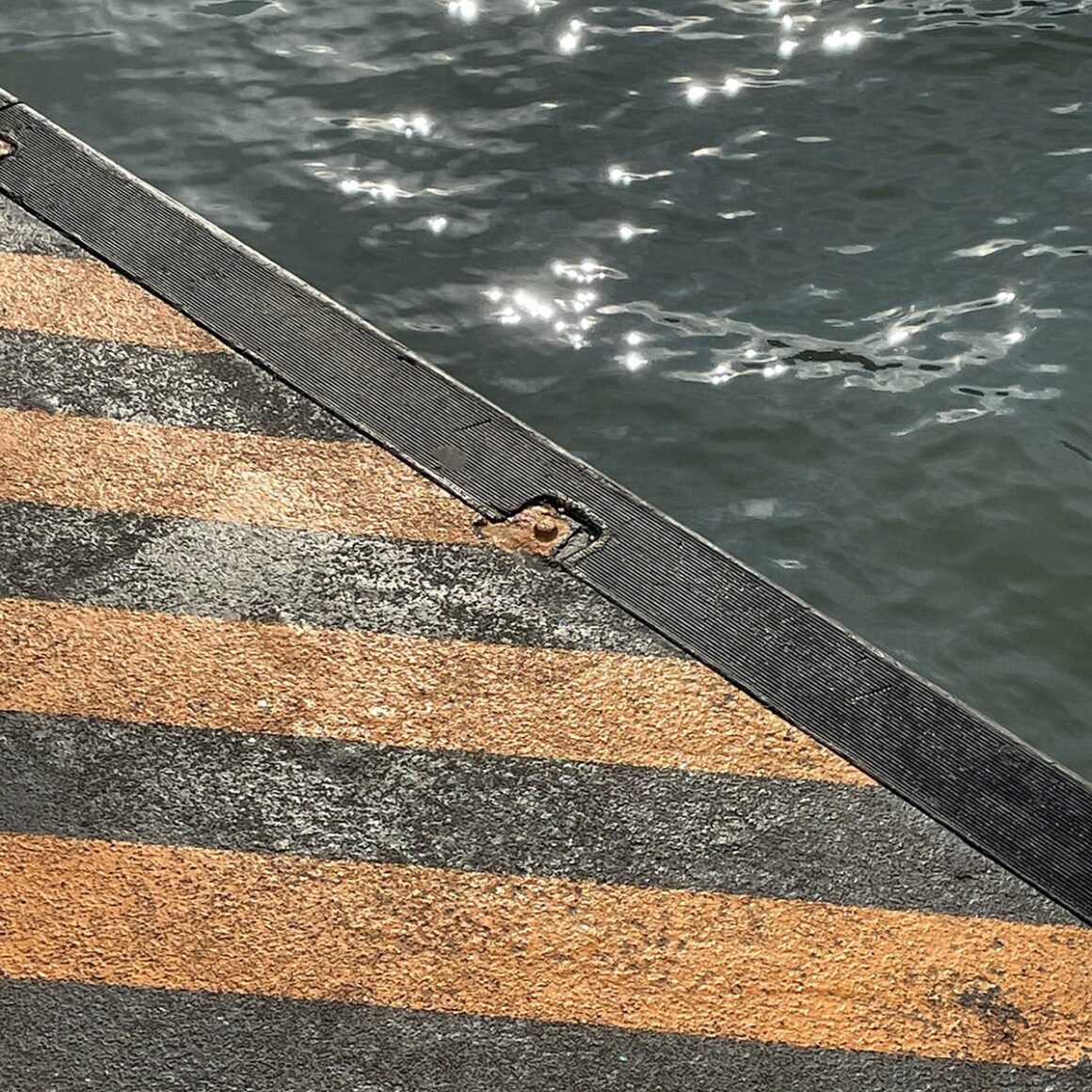
V: Another recurring aspect in these conversations is this positive outlook, this rejection of complaining, this feeling of being active agents involved in a change that is already happening.
N: Indeed, the narrative of resignation isn’t very useful. Yes, Venice is chaotic and touristic. Of course, it’s not easy to go against larger forces. For example, it took us a year to finally open Sangueblu, our store. We had to deal with many people who prefer to rent quickly without considering the type of business. So, for us, who were independent and wanted to open a vintage store in the midst of a pandemic, it wasn’t easy; it wasn’t easy to explain what we wanted to do either. Fortunately, in the end, we found these Venetian landlords who helped us get started. So, tenacity pays off. You can’t stop at the first closed door; you have to fight a bit, better if alongside other people who are doing the same. That’s the most important lesson.
V: Where did the idea for a vintage store come from?
N: Since I was a teenager, I’ve always had a passion for clothes. I used to rummage through the stalls at the market in my small town. Over the years, I refined my taste and continued to collect vintage clothes; I would sell the ones I didn’t wear. So, during the pandemic, at a difficult time for the graphic design studio where Daniele and I were working, he proposed that we reinvent ourselves and open a vintage store together. Initially, I thought he was joking; I had never done it before, and it seemed like an absurd idea to me. Then, I thought it was a bubble that would burst. But then, in December 2020, I received a call from him announcing that he had found the perfect space on Calle dei Fuseri, an area of memory for him. It was a sign. I wasn’t completely convinced, but after some hesitation, we signed the contract, and in 2021, with a small budget, we opened Sangueblu.
In the following months, my partner, Davide joined us, and together we shaped it in our image – from the hangers to the latest garment. Personally, I’m happy to say that I’ve put everything I know about vintage since I was 12-13 years old into it; it completely reflects me.
“Tenacity pays off. You can’t stop at the first closed door; you have to fight a bit, better if alongside other people who are doing the same. That’s the most important lesson.”
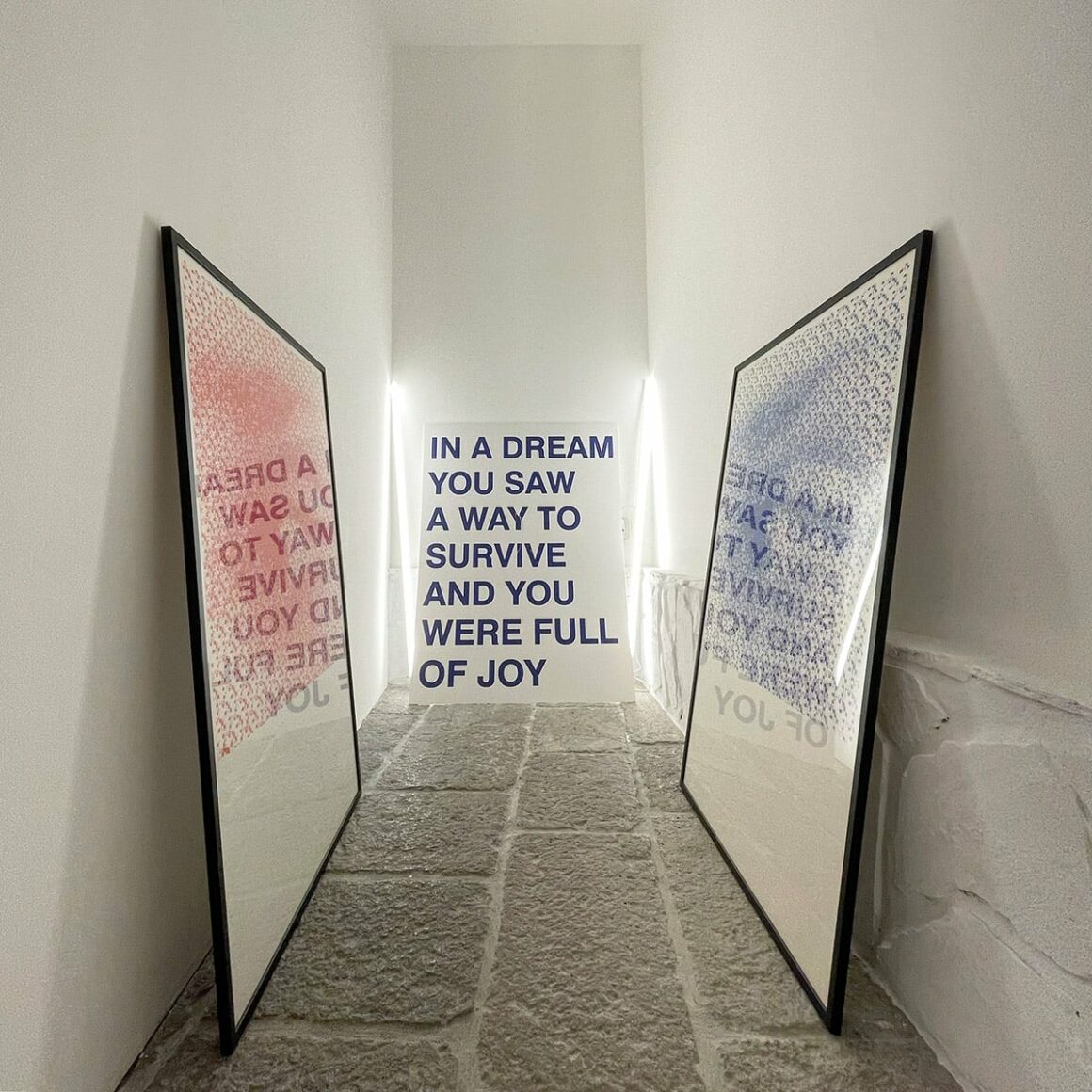
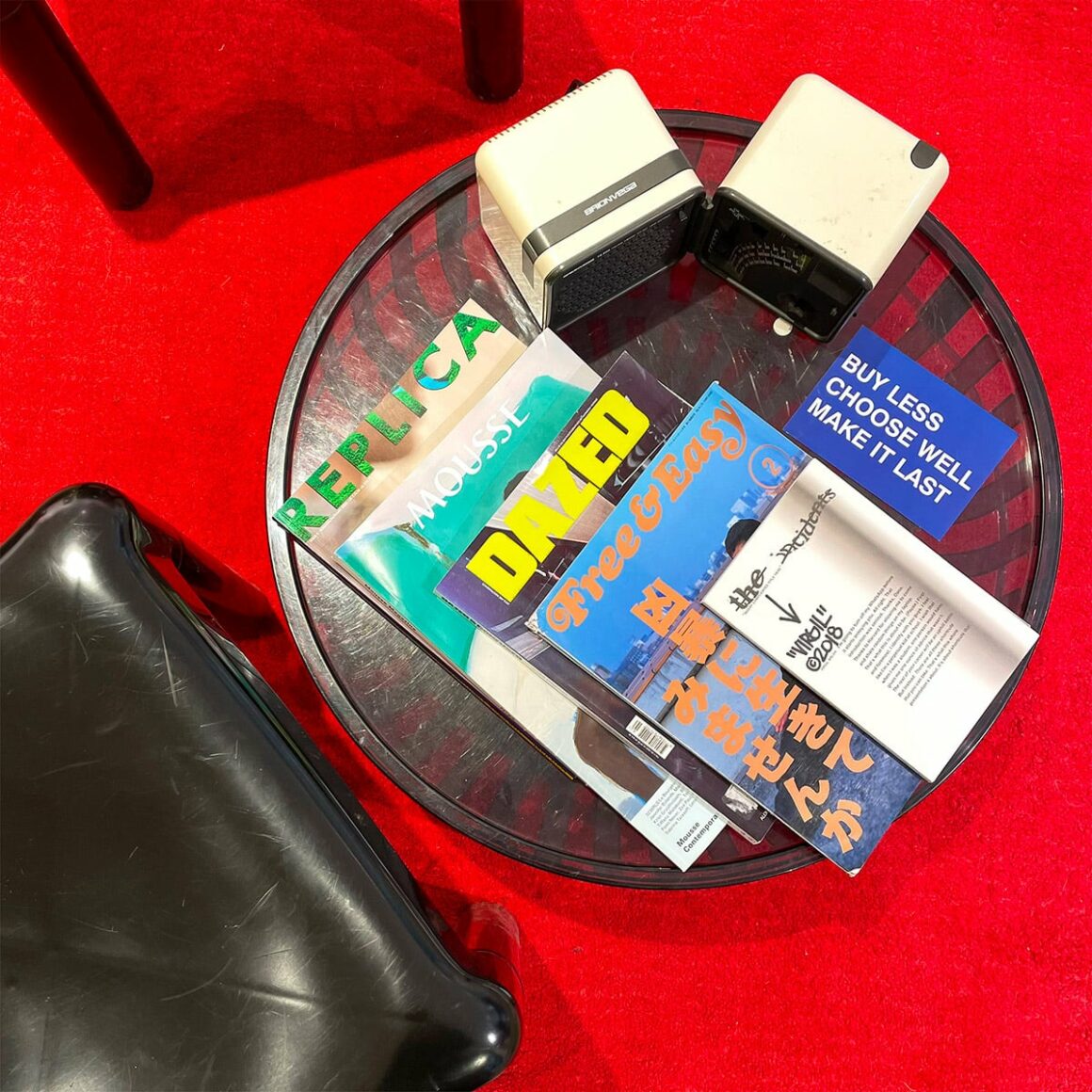
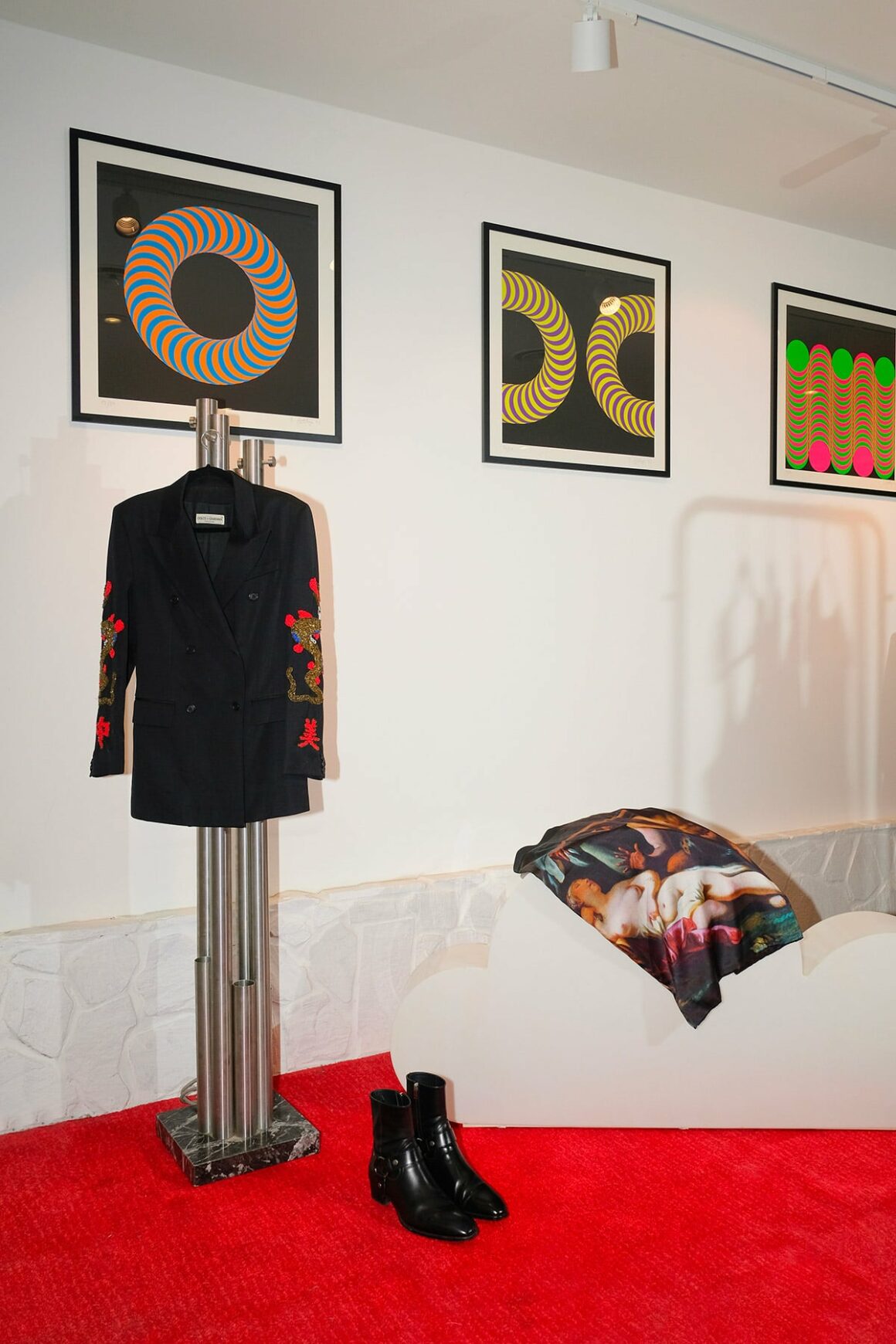
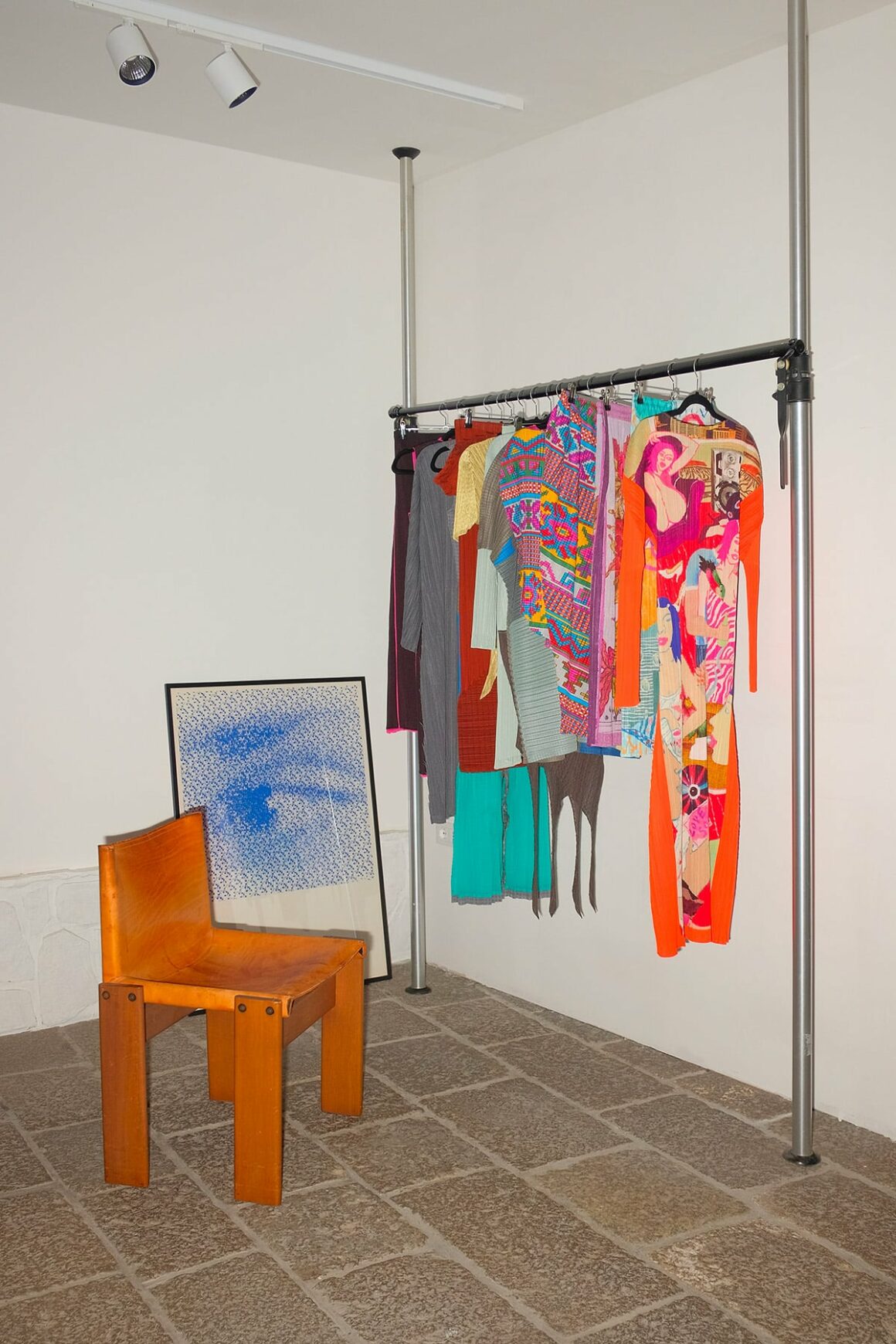
V: How has it been going after two years?
N: To be honest, I didn’t expect it to bring us so much satisfaction. But within a year, we were featured in Vogue, and then Jeremy Scott came to visit our store! Today, I can say that the community that is forming around us is truly beautiful. Despite being in Venice, we can work with New York, London, Paris, as well as with locals or people passing through, and it’s amazing because in this meeting point, you can have a local lady who has never bought vintage clothing in the store at the same time as a fashion influencer who knows everything about it.
But the most beautiful thing is the stories that come with the garments. We buy from private archives, closets, and auctions. Sometimes Venetian ladies come to us and tell us about their sparkling lives and their glamorous past, and it’s amazing; it’s like entering their intimacy, becoming a bit confessional in that moment. And these stories are then shared with the customers; they are an integral part of purchasing that garment; they must listen to them! We could write a book with all the stories we’ve gathered over the years.
V: There, on Calle dei Fuseri, you have a privileged perspective on the complexity of the city’s dialectic – a crazy coming and going.
N: When we opened, Calle dei Fuseri was deserted – an unequivocal sign of the fragility of certain dynamics exploiting the center. There were just some historic businesses, like the pastry shop across the street, the shoe store, the perfumery, and the art supply store – in short, the historical memory of that area. We immediately created a sense of community with them; they all came to get to know us, and we formed close relationships with many of them, like a small village. Then, with the various reopenings, the calle became very touristy again. The historic shops survive because they have been there for years, but for young people like me, the challenge is to compete with yet another souvenir shop, another restaurant, and to feel a bit surrounded only by things that lack meaning. The other side of the coin is that as soon as a new store opens, it immediately works because it’s easy to stand out.
V: I can imagine that there was curiosity directed toward you as well.
N: Partly because our store is not a typical vintage store and partly because both Davide and I are both from the south (me from Caserta and him from Naples), people didn’t understand what we were doing there. But they immediately took us under their wing. They pamper us, they bring us pizzas when we’re a bit blue – it’s all very human.
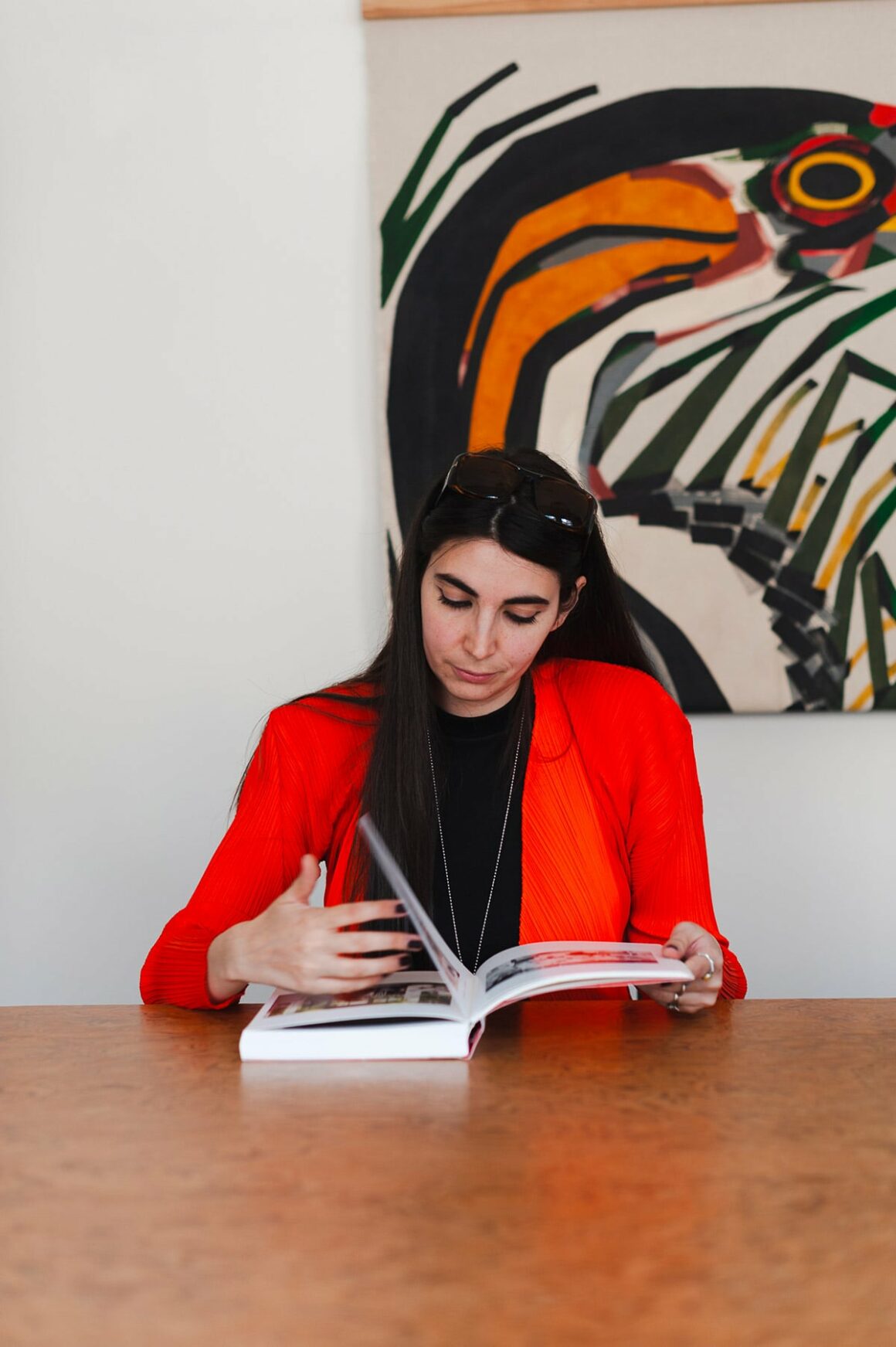
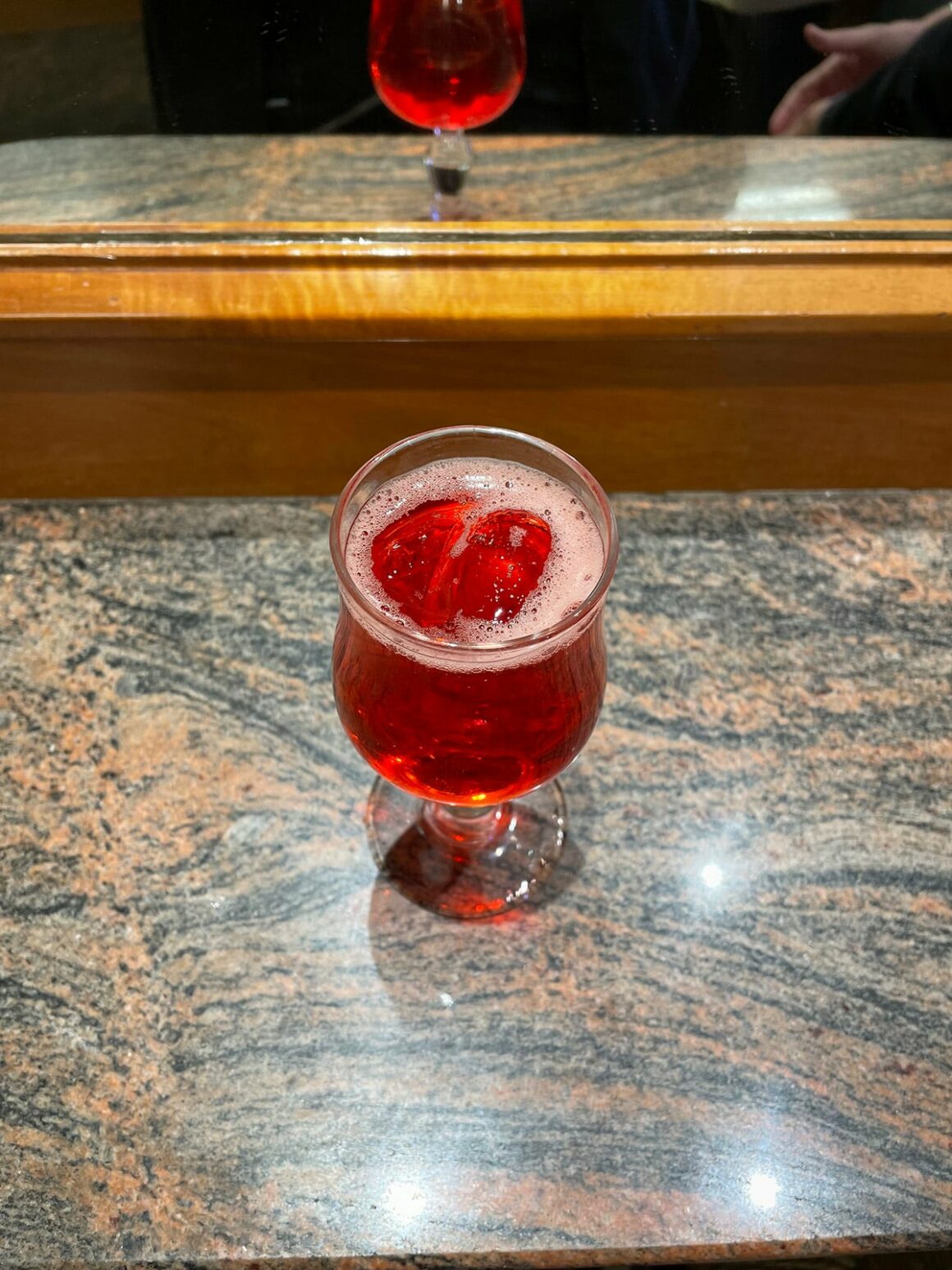
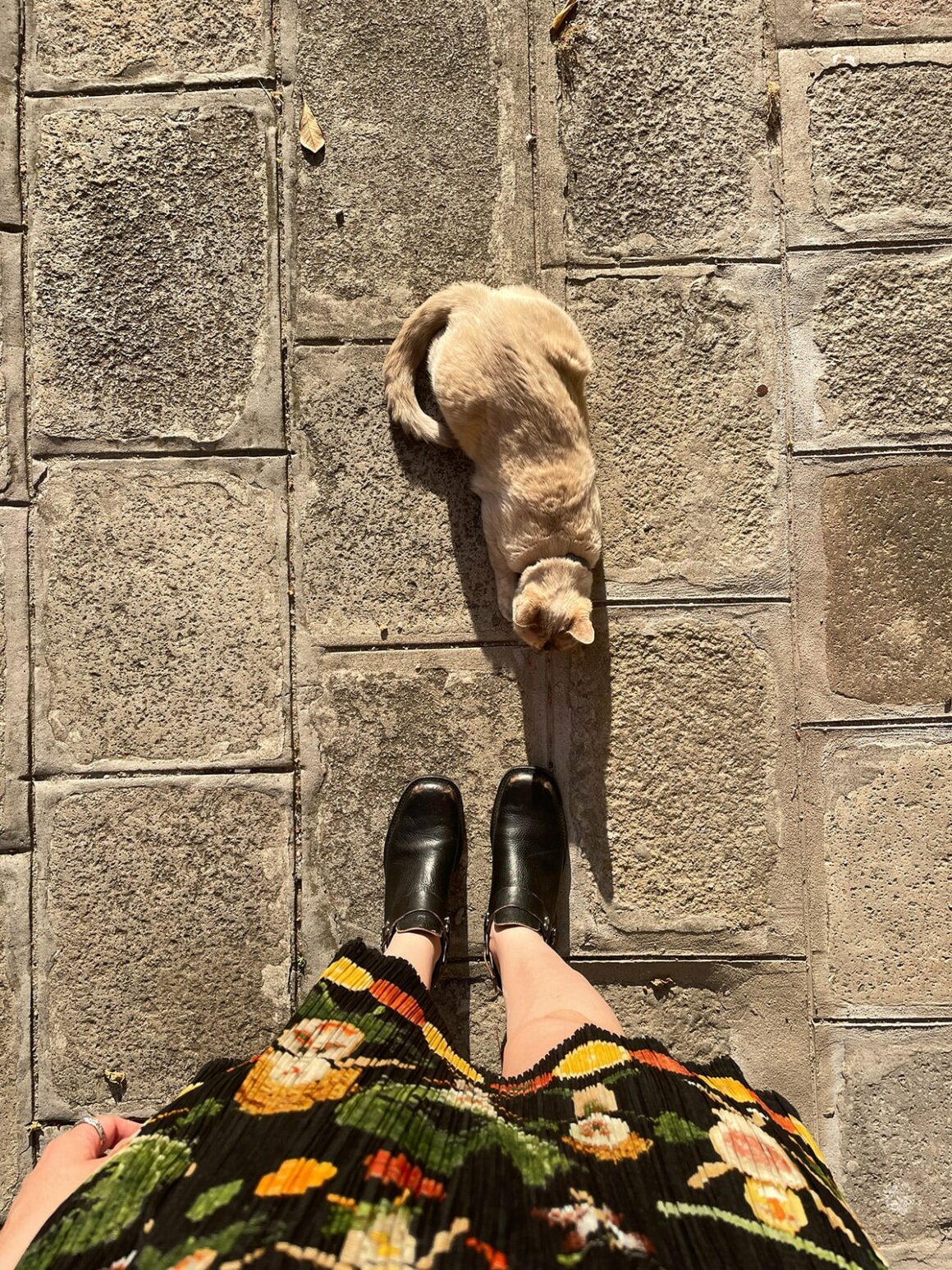
V: What are the rhythms of life like in the store?
N: Unlike places where life moves fast, everything here is slowed down, and it’s a beautiful thing. At 6:30 pm, we close, and everyone gathers to have an aperitivo together, it’s time to go to Marchini, the bar on the corner, and you find all the regulars there. I love it because when I see the same characters all the time, I eventually want to know everything about them. And they tell me that they’ve been going there for 30 years, every day, even on Sundays to get pastries. We share our stories, there’s that moment of neighborhood gossip, of lightness. And there, you realize that yes, Venice may be a city with millions of tourists every year, but you don’t lose that local dimension, and it’s beautiful.
V: Tell me about your other rituals.
N: The morning is my sacred time. I have coffee at the bar, then I arrive at the store and sit at the computer to study – I look at catalogs, runway shows, interviews; it’s my nerdy time. And then, my favorite moment is when I walk home in the evening. I pass through the Frari area, San Rocco, which I adore. I like it because even at that time, the city becomes quiet, and it’s surreal – it’s surreal that everything shuts down at 10:30 pm. Coming from the south, where the party starts at 11 pm, here everything ends. At first, you feel a bit disoriented, but then you get used to it – by 11 pm, we’re already in bed reading or watching a movie. It’s all very calm, but in a good sense.
V: The love for wandering around on foot in the evening is an unequivocal sign of being an INCURABILE.
N: Absolutely. And I love the idea of feeling part of this group of people who recognize themselves in this city, who invest in it. It motivates me. If you focus on those who don’t do anything, you’ll never get anywhere; you have to look at those who are doing something. I’m very optimistic; I have no intention of imagining a city that becomes an empty set.
V: A city that doesn’t become the new set of a new Casanova…
N: Exactly! Let them go to Cinecittà; here we need a real city.








